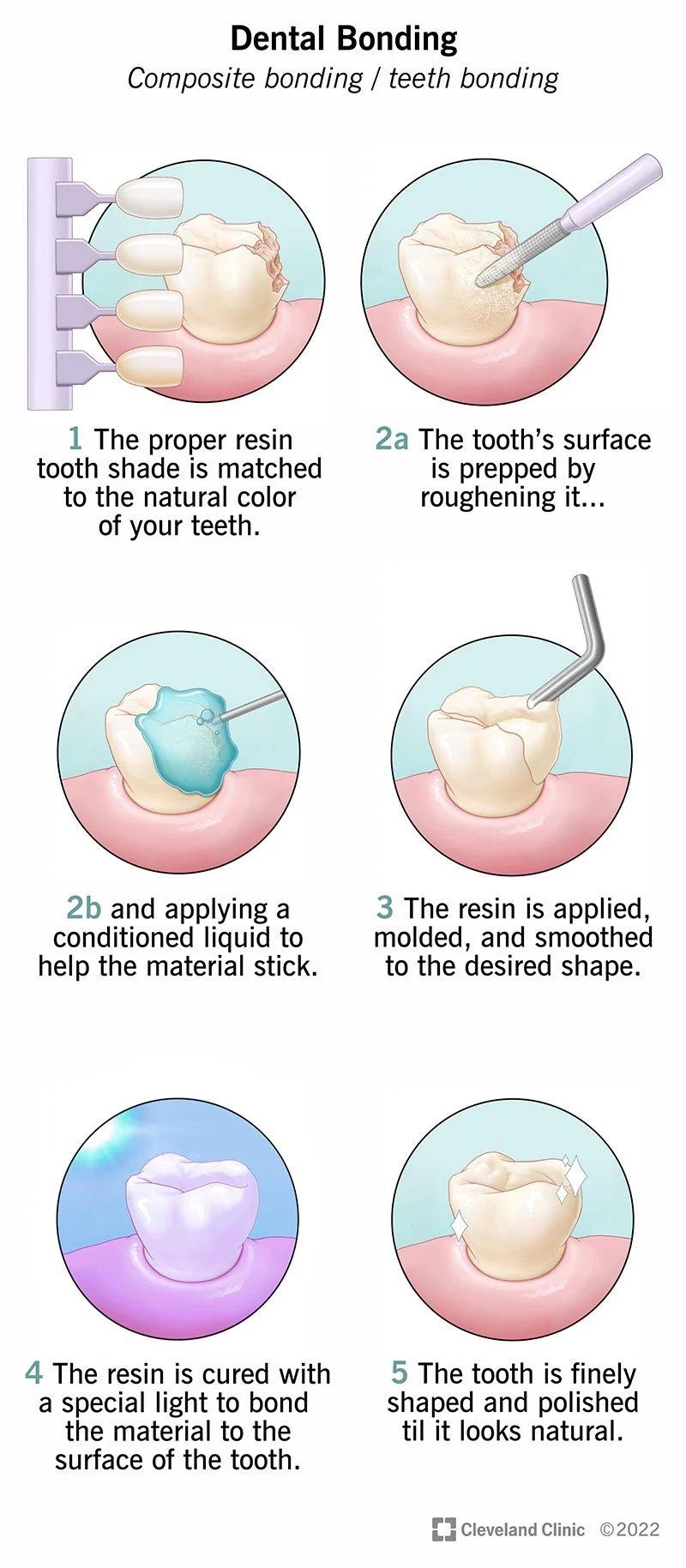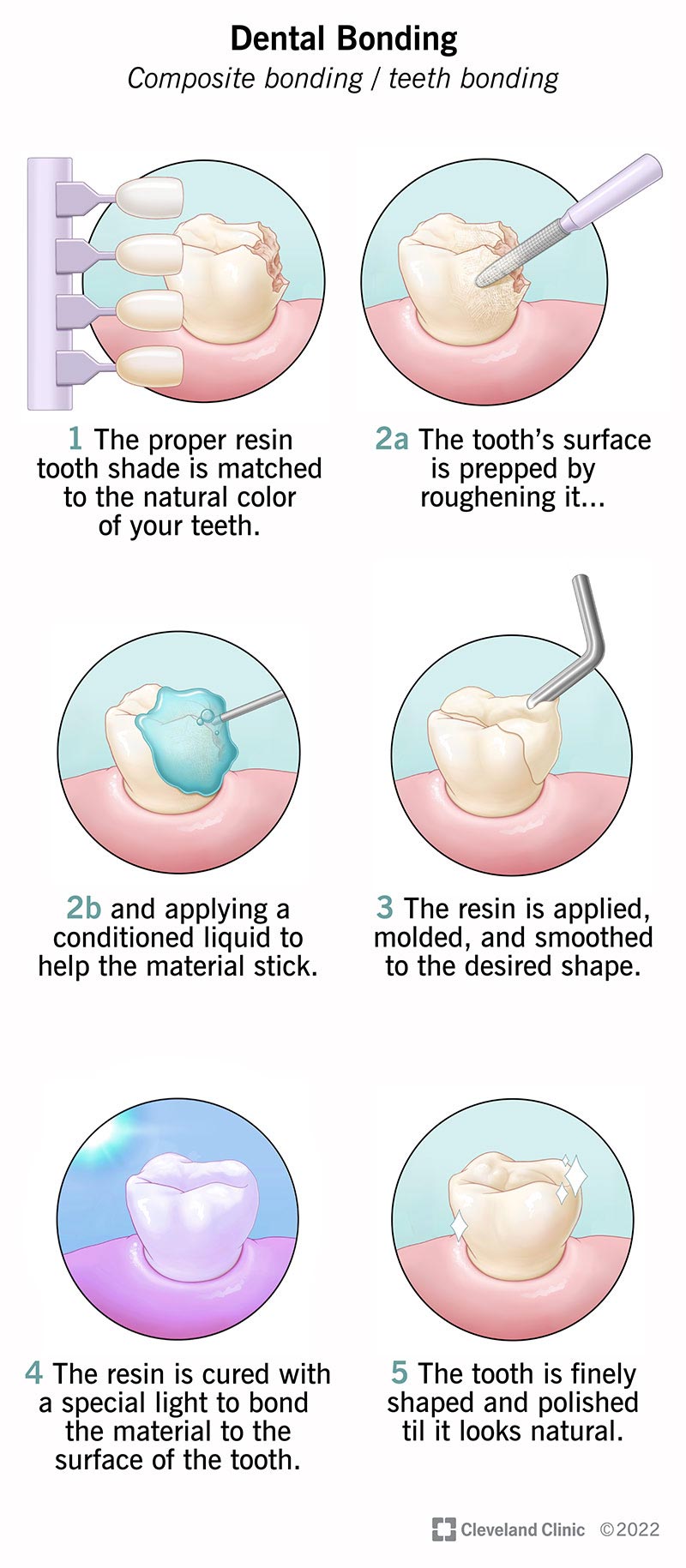
Dental bonding is a cosmetic procedure using tooth-colored resin to enhance teeth appearance, ideal for issues like chipping or discoloration. However, it’s essential to understand that dental bonding is not reversible. The resin material, once bonded and hardened with special light, becomes a permanent part of the tooth structure. Therefore, individuals contemplating this treatment should carefully weigh their decision, as it’s a long-term transformation. While dental bonding is an effective solution for improving smiles, its permanence underscores the need for informed and thoughtful consideration before undergoing the procedure.
Is Dental Bonding Reversible?
Dental bonding is a common cosmetic dental procedure that involves applying a tooth-colored resin material to the teeth to improve their appearance. Many people opt for dental bonding to fix various dental issues such as chipped or discolored teeth, gaps between teeth, or even to reshape teeth. However, before undergoing any dental procedure, it is essential to understand the potential risks and benefits, including whether dental bonding is reversible.
The Process of Dental Bonding
Procedure of Dental Bonding:
- Dental bonding is a one-visit procedure.
- Dentist prepares the tooth, applies conditioning liquid.
- Resin material is applied, molded, and hardened with special light.
- Tooth is polished for a natural appearance.
Irreversibility of Dental Bonding:
- Unlike veneers, dental bonding is not easily reversible.
- The resin material becomes a permanent part of the tooth.
- Adjustments or repairs can be made but involve some removal of the original bonding material.
Benefits of Dental Bonding:
- Non-invasive, preserves natural tooth structure.
- Quick, painless, and cost-effective.
- Versatile in correcting various dental concerns.
- Resin material matches natural tooth color.
Lifespan of Dental Bonding:
- Lasts around 5 to 10 years on average.
- Longevity depends on oral hygiene, diet, and lifestyle habits.
Caring for Dental Bonding:
- Maintain good oral hygiene with regular brushing, flossing, and dental check-ups.
- Avoid habits that can damage bonding material.
- Staining or discoloration may occur over time but can be managed with whitening treatments.
Reversibility and Adjustability:
- Dental bonding is not reversible in the traditional sense.
- It can be adjusted, repaired, or replaced if needed.
- Consult with a dentist for guidance on the best course of action.
Key Takeaways: Is Dental Bonding Reversible?
- Dental bonding is a procedure where a tooth-colored resin is applied to the teeth to improve their appearance.
- While dental bonding can be a great solution for many dental issues, it is not reversible.
- Once the resin is bonded to the teeth, it cannot be easily removed without damaging the tooth enamel.
- If you are considering dental bonding, it’s important to understand that it is a permanent treatment.
- Make sure to discuss all the pros and cons with your dentist before deciding on dental bonding.
Frequently Asked Questions
1. What is dental bonding?
Dental bonding is a cosmetic dental procedure in which a tooth-colored resin material is applied to the teeth and bonded with a special light, resulting in a natural-looking restoration. It is commonly used to repair chipped or cracked teeth, close gaps between teeth, and improve the appearance of discolored teeth.
The procedure is relatively quick and painless, making it a popular choice for those looking to enhance their smile without invasive treatments. Dental bonding can provide long-lasting results with proper care and maintenance.
2. Is dental bonding reversible?
No, dental bonding is not considered reversible. Once the resin material is applied and bonded to the teeth, it cannot be easily removed without damaging the tooth structure. However, if necessary, the bonding material can be repaired or replaced by a dental professional.
It is important to note that dental bonding is a conservative treatment option that requires minimal alteration of the natural tooth structure. The procedure does not involve any permanent changes to the teeth, allowing for future modifications if desired.
3. How long does dental bonding last?
The lifespan of dental bonding can vary depending on several factors, including oral hygiene practices, dietary habits, and the location of the bonded teeth. On average, dental bonding can last between 5 to 10 years with proper care.
It is important to avoid biting on hard objects, such as ice or pens, as this can damage the bonding material. Additionally, maintaining good oral hygiene through regular brushing, flossing, and dental check-ups can help prolong the lifespan of dental bonding.
4. Can dental bonding stain or discolor over time?
While dental bonding is resistant to staining, it can still be susceptible to discoloration over time, especially if proper oral hygiene is not maintained. Certain foods and beverages, such as coffee, tea, and red wine, can potentially stain the bonding material.
To minimize the risk of discoloration, it is recommended to avoid or limit the consumption of staining substances and maintain regular oral hygiene practices. If discoloration occurs, a dental professional can polish or replace the bonding material to restore its natural appearance.
5. Can dental bonding be used to fix any dental issue?
Dental bonding is a versatile treatment option; however, it may not be suitable for all dental issues. It is commonly used for minor cosmetic improvements, such as repairing small chips or gaps, and improving the appearance of discolored teeth.
For more extensive dental problems, such as severely damaged or misaligned teeth, alternative treatments like dental crowns or veneers may be recommended. It is best to consult with a dental professional to determine the most appropriate treatment for individual dental needs.
Is Composite Bonding Reversible? Learn how Bespoke Smile use Composite Bonding
Final Summary: Is Dental Bonding Reversible?
Dental bonding is not entirely reversible, as the bonding material becomes permanent once applied and hardened. However, it can be adjusted, modified, or replaced by a dentist if needed. The procedure offers versatility in enhancing the appearance of teeth and can be adapted to meet changing preferences or repair requirements. Consultation with a dentist is crucial to explore options for achieving the desired smile.
Call or Book appointment online
:Ace Dental Care Alpharetta office: 678-562-1555 - Book Now
Ace Dental Care Norcross office: 770-806-1255 - Book Now
Disclaimer
This blog post was generated by artificial intelligence. The content of this post may not be accurate or complete, and should not be relied upon as a substitute for professional advice. If you have any questions about the content of this post, please contact us.
We are constantly working to improve the accuracy and quality of our AI-generated content. However, there may still be errors or inaccuracies. We apologize for any inconvenience this may cause.






